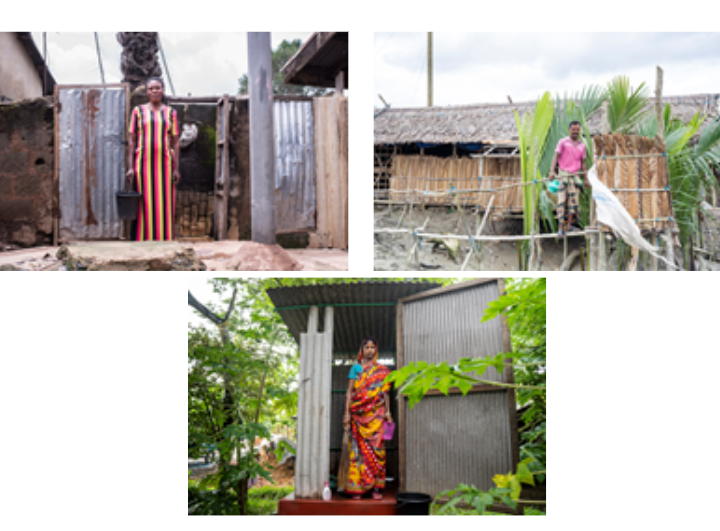A staggering 112 million people still do not have access to a private toilet of their own, and about 46 million have no choice but to practise open defecation – Water Aid Nigeria
Water Aid Nigeria has reiterated that living without a toilet endangers the health and livelihoods of the world’s most vulnerable people – and the risk of living without proper sanitation increases as climate change bites.
The organization made this known at a briefing themed Living in a fragile world: The impact of climate change on the sanitation crisis in commemoration of this year’s World Toilet Day, highlighting the link between poor sanitation and the transmission of fatal, but preventable illnesses – such as cholera – and examines how these are now compounded by the effects of climate change.
According to WaterAid Report, Only 88 million people living in Nigeria (that is 44% of the population) can rely on safely managed sanitation – that is a toilet serviced to allowed human waste to be treated and disposed of safely. About 32 million people (16% of the population) have limited sanitation – that is the use of improved latrines where there is hygienic separation of human faeces from human contact but that is shared by two or more households. A staggering 112 million people still do not have access to a private toilet of their own, and about 46 million have no choice but to practise open defecation.
Where decent toilets are lacking, human faeces can contaminate the groundwater or end up in rivers and lakes, polluting what is often the only supply of water for drinking, cooking, and cleaning. Children play on ground rife with pathogens and as a result of faecal contamination, whole communities can contract diarrhoeal diseases.
Further, inadequate sanitation in healthcare centres increases the risk of them becoming the epicentres of epidemics as only 7% of healthcare facilities in Nigeria have access to basic water and sanitation services and only 3.6% to combined water, sanitation and hygiene (WASH) services; putting the lives of doctors, nurses, midwives and patients at risk.
Now climate change is aggravating the sanitation crisis. Extreme weather – floods, rising temperatures, prolonged droughts – are causing irreparable damage to weak sanitation systems and causing illnesses to spread further in vulnerable communities. An estimated 250,000 additional deaths per year are predicted between 2030 and 2050 due to climate change and many of these deaths will be linked to poor sanitation.
Poor sanitation impacts the entire country – it is estimated that Nigeria loses 1.3% of its GDP annually due to poor sanitation. In 2018, the Nigerian Federal Government declared a state of emergency in its water, sanitation and hygiene sector, and launched a National WASH Action Plan in response to the huge challenges linked to the poor sanitation and hygiene. This was followed the next year by the ‘Clean Nigeria: Use the Toilet’ campaign, which aims to end open defecation by 2025. However, there is a $20 billion annual funding gap for WASH in Nigeria to achieve universal access to water and sanitation by 2030. It is clear that there will need to be a significant upscaling of resourcing over the next decade if the National WASH Action Plan is going to create real results for the people of Nigeria.
WaterAid is calling for urgent action from the Nigerian government and the international community to increase investment in sanitation services. Safe, reliable, and inclusive sanitation services help prevent the spread of infectious diseases. The international charity is encouraging governments to include ambitious sanitation plans in their climate change adaptation strategies so communities are better prepared to withstand the impacts of climate change.
Also speaking at the briefing, Evelyn Mere, Country Director of WaterAid Nigeria, said: “Whilst the world has rightly urgently risen to the challenge of Covid-19, every year hundreds of thousands of lives are silently lost because of lack of clean water, decent toilets and hygiene.
“Having these basic human rights in place helps to stop infectious diseases in its tracks and decent sanitation systems are even more vital as the impact of climate changes bites on vulnerable communities.
“WaterAid’s report shows that climate change has intensified the sanitation crisis, with increasingly frequent and extreme weather events, destroying toilets and sanitation systems, putting the health and lives of millions of people around the world at risk.
Mere added that the government must respond now to the urgent threat of climate change, and recognise the vital role climate-resilient sanitation plays in helping vulnerable communities be more prepared for climate change; because despite contributing the least to it, it’s the world’s poorest people currently suffering the brunt of its destructive impact.
